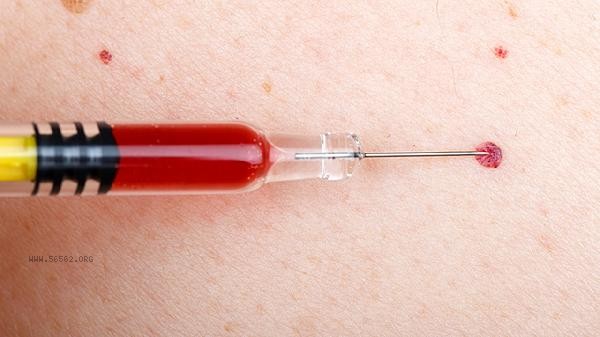Bleeding time exceeding 9 minutes is considered prolonged. The normal bleeding time is usually 2-8 minutes, and prolonged bleeding may indicate abnormal platelet function, hemophilia, or the use of anticoagulant drugs. Clinical judgment should be combined with laboratory tests such as platelet count and coagulation function.

1. thrombocytopenia:
Diseases such as primary thrombocytopenic purpura or aplastic anemia can lead to insufficient platelet count. Platelets are a key component in hemostasis. When the count is below 50 × 10 ⁹/L, the capillary contraction ability decreases and the bleeding time may be prolonged to more than 15 minutes. The cause needs to be identified through bone marrow puncture, and treatment includes glucocorticoids, immunoglobulins, etc.
2. Platelet dysfunction:
Hereditary thrombocytopenia or long-term use of drugs such as aspirin can affect platelet aggregation function. Even if the platelet count is normal, its adhesion and release reactions are obstructed, resulting in prolonged bleeding time of 10-20 minutes. The laboratory can conduct platelet aggregation tests for diagnosis, and if necessary, administer platelet suspension.
3. Vascular abnormalities:

Hereditary telangiectasia or scurvy caused by vitamin C deficiency can damage the endothelium of blood vessels. Weakened vasoconstriction leads to prolonged bleeding time, often accompanied by skin bruising, gum bleeding, and other symptoms. A positive capillary fragility test can assist in diagnosis, and treatment should be targeted at the primary cause. 4. Coagulation factor deficiency: Hemophilia or vitamin K deficiency can lead to insufficient synthesis of coagulation factors VIII and IX. Although it mainly affects prothrombin time, in severe cases, bleeding time can be prolonged to more than 12 minutes. Four coagulation tests are required to clarify, and alternative treatment requires infusion of cryoprecipitate or prothrombin complex.
5. Drug effects:
Anticoagulants such as warfarin and heparin can interfere with the coagulation cascade reaction. Long term users may experience bleeding for more than 10 minutes, often accompanied by an increase in INR values. Regularly monitor coagulation function and adjust medication dosage or use hemostatic drugs in combination if necessary.
Daily attention should be paid to avoiding intense exercise and trauma, and increasing the intake of foods rich in vitamin K such as spinach and animal liver. For those with prolonged bleeding time, it is recommended to recheck coagulation function every 3-6 months. Women should be alert to excessive menstrual flow during their menstrual period. When continuous bleeding or large subcutaneous bruising occurs, immediate medical attention should be sought for coagulation factor activity testing and vascular ultrasound examination. During the use of anticoagulant drugs, elderly patients should use a soft bristled toothbrush to reduce the risk of mucosal bleeding.










Comments (0)
Leave a Comment
No comments yet
Be the first to share your thoughts!